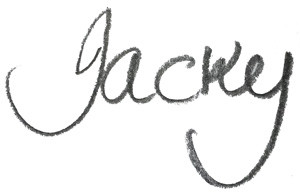“While we waste our time hesitating and postponing, life is slipping away.”
Seneca (Roman Philosopher)
This is one of those occasions when I spend a few hours thinking about what to write in my blog. In fact, I have been procrastinating. Every time I have sat down in front of my computer, I think of something else to do. Or I hear an email drop in with a ping and must see what it is about, or who it is from. The temptation of the distraction is too great.
Finally, I make yet another cup of tea and say ‘Right – just sit and do it, now’.
I seem to be very good at procrastinating. I first noticed this innate skill of procrastination when I was writing my final dissertation towards the MSc Studies in Mindfulness and when I was training to teach Yoga. With the Yoga training I really had to practice most days. First thing in the morning was best. All I had to do was roll out of bed on to my yoga mat and practice. But most of the time I would think of dozens of things I needed to do first rather than just get on with it. Excuses like – ‘I need to check my email first’. ‘I’ll just have a cup of tea before I start’. ‘The dishwasher needs emptying’ – the list of excuses is quite long.
Then it came to the dissertation. I could have been awarded an MSc in Procrastination as this is when I got really good at it. I would do anything than sit at my computer and write that damn chapter. There were clothes to be washed, dinner to cook, shopping to get, people to visit …..So I locked myself away at Samye Ling for 10 days to get the chapter written. Perfect I thought. But here is what happened.. I ended up writing the chapter 5 times and still didn’t complete it satisfactorily. Simply because, as a friend pointed out, I was trying too hard. She sent me a poem and I laughed. And I got it. Here is the poem that made the difference.
Letting Go
Letting go, in order to let in
releasing, in order to receive
nature’s coded messages become clearer
the less we try to see.
Trying hard, trying harder and harder
trying so very hard
is not the way.
We need commitment, yes
and focus
and hope and faith and trust
but most of all we need ease
a discipline of ease
not trying too hard at all.
You see “trying hard” has a cell-mate
called “giving up”, admitting defeat
like black and white
like pushing and pulling
no peace there.
“Not yet”, you say
“I’m not ready yet
to take the step beyond.”
I know
I’ve stepped so slow myself,
still do
but love sweet sister,
like death
comes in a moment’s heartbeat
then goes.
There are no ways to hold
except by letting go, and
letting it be a part of you
and you of it.
Stewart Mercer
I ‘Googled’ procrastination. It seems there are four types of procrastinator. Apparently, according to the descriptions, I am number 1 – The Performer (a grand title for a procrastinator) who apparently works well under pressure and whose biggest challenge is – getting started. Well, that seems to describe me perfectly well. Apparently, this form of procrastination is caused by perfectionism and a hardwired habit of putting pressure on myself – I guess that rings true.
To begin with I gave myself a hard time about my habit of delaying a task and of trying too hard, which were clearly inextricably linked.
You see “trying hard” has a cell-mate called “giving up”, admitting defeat – like black and white – like pushing and pulling – no peace there”.
My mindfulness training has provided me with the gift of ‘knowing what is happening while it is happening’, so I was able to look at this innate behaviour that I have developed over time. On reflection procrastination feels like an anxious, fidgety knot in my solar plexus. I can even feel my heart rate increase. My heart is beating a little faster too.
At the weekend I was teaching Mindfulness Level 1 with Alan and we covered the 3-stage breathing space. I decided to use this practice to help create a pause and allow me to switch from doing to being.
As I unravelled this incidence of procrastination, I could detect an underlying fear of failure. “what if I cant think of anything this time”, “what if it takes me all night to write the blog”, “what if I write a load of rubbish”… and on it went. Negative self-talk. I could see my self-critic having a hay day, rubbing its hands together and the impact this was having on me.
I was delighted to read that procrastination is hardwired in the brain and is likely to occur when two parts of the mind are at odds with each other when faced with a task. My limbic system (associated with mood and instinct) would prefer me to do something pleasant, whilst my prefrontal cortex (associated with planning and decision making) is leading me to complete the task. Then the amygdala, which is associated with our reactions to situations when we are on autopilot, gets involved and begins to create a fight, flight, freeze scenario as stress begins to occur in the body.
Mindfulness training helped me to realise what was happening and with a little self-compassion I was able to let myself off the hook for blaming myself for procrastination.
Next time I notice myself procrastinating I will use Alan’s 3 stage breathing space and this little method to help me get going, I found this little method worked so will try it again next time I am mindful of procrastination.
- Pause and focus on my breath, feeling my feet connected to the ground.
- Notice any negative self-talk and give myself some kindness for feeling the way I do.
- Realise that it doesn’t have to be perfect.
- Give myself a deadline to just begin…. Then the rest will just happen.
- Smile
Weekly Challenge
I invite you to notice when you are putting off a job that needs doing and how it is making you feel. Notice how creative you are in finding distractions, anything other than the task. You might like to try the short 3 stage breathing space with Alan. Let yourself off the hook for the hardwiring in your brain and maybe try my little method or create one of your own to get going. I’d love to hear your thoughts so please do write to me at membership@mindfulnessassociation.net.
Warm wishes
References
Daftardar, I., 2021. The Science Of Procrastination: Why Do We Keep Postponing Things?
Sirois, F.M., 2014. Procrastination and stress: Exploring the role of self-compassion. Self and Identity, 13(2), pp.128-145.



